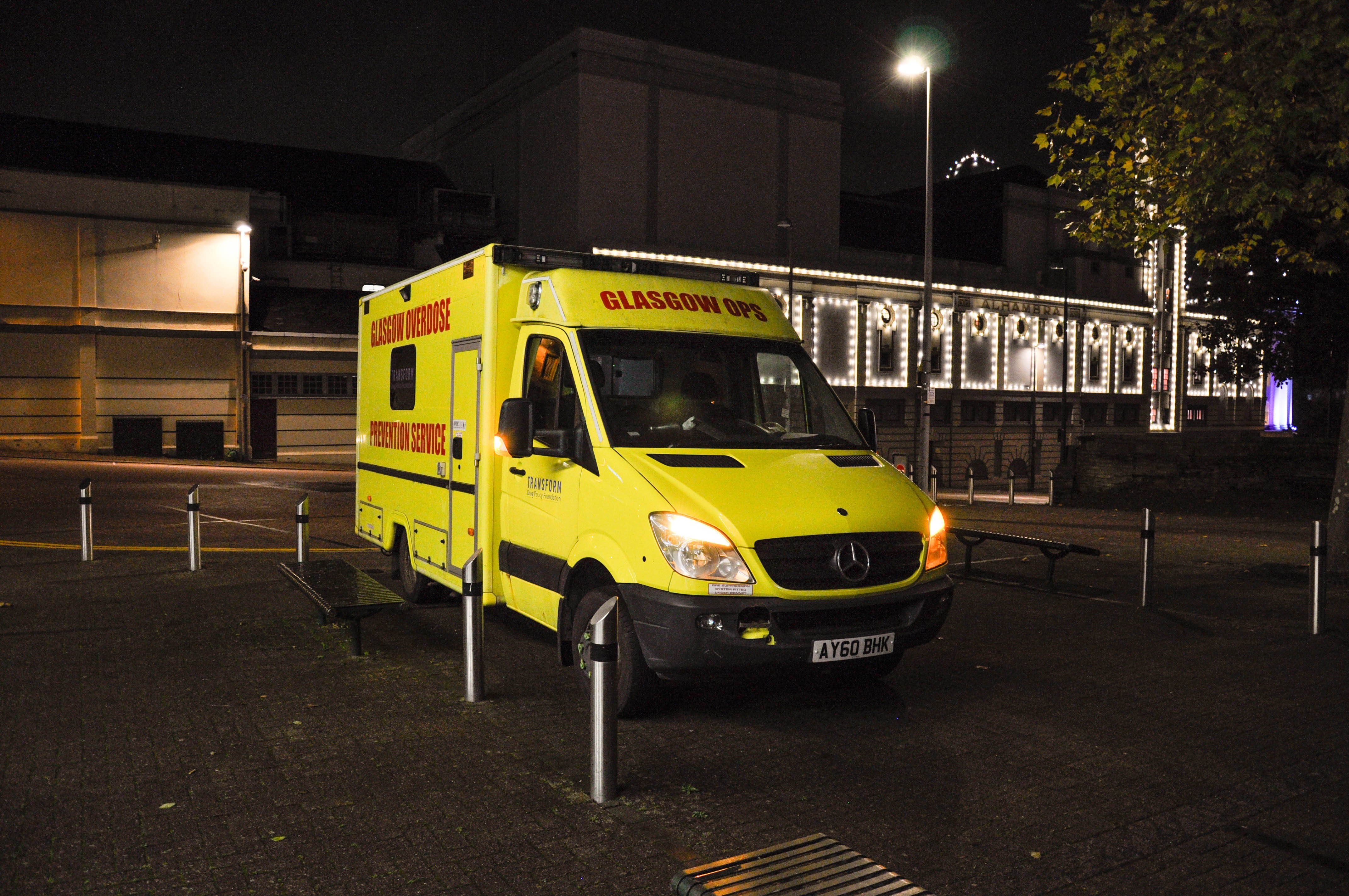14th February 2024
Summary: Glasgow, where the UK’s drug death crisis is worst, has overcome opposition from Westminster to open a potentially life-saving overdose prevention centre. What does this mean for other cities across the UK wanting to tackle drug-related harms?
Approximate reading time: 4 minutes
With Scotland set to open the UK’s first official Overdose Prevention Centre (OPC), should and could cities in Wales, England and Northern Ireland follow suit? In a word, yes.
First, what are OPCs (also known as safer drug consumption facilities), how do they prevent drug deaths and how did Glasgow get its plans approved?
The Scottish Government and NHS have wanted to open official OPCs, which are used in many countries, since 2016. There’s a huge global evidence base built up over decades which proves they reduce drug deaths and other harms, and they are backed by heavy-weight health bodies and the UK Government’s own experts.
Instead of hurriedly injecting drugs in the street, or alone in a hostel room, people use a clean, safe space, supervised by trained staff. They can be small and based in existing services, large stand-alone facilities, or mobile units.
No one dies, because any overdoses are treated immediately. Access to treatment services, injection wound care and housing support can rebuild people’s health and lives, and may reduce drug use. Communities see fewer discarded needles, less pressure on health services, and save money.

A clear path to Overdose Prevention Centres
It’s a huge boost to anyone wanting an effective, compassionate approach to drugs that Scotland’s chief prosecutor has now said people using an authorised OPC will not be prosecuted, meaning police will not arrest them. So Glasgow’s facility, which has cross-party support in Scotland, can open. This in spite of the UK Government consistently opposing OPCs, saying there is no legal framework to open one, and that it would not change the law to allow them.
Other places, including Bristol and Belfast City Councils and a needs assessment for Cardiff Council, have also acknowledged the benefits. Some authorities have said they want to open an OPC but claim they can’t because the UK Government says no. Happily, that problem is now gone.
The UK Government announced it will not interfere with the Glasgow OPC. Keir Starmer also says he’ll respect the wishes of the Scottish Parliament should Labour take power in this year’s general election. So the same should be true for the Senedd, and city councils and mayorships across the UK too.
Yet Bristol City Council and the Welsh Government are mistakenly still saying they can’t open one because “OPCs are still illegal in England”. Yet, just as Glasgow is opening one without a change in the law, so can other parts of the UK.
Police discretion
In fact, it could be easier in England and Wales. Under Scotland’s legal system, Police Scotland are legally obliged to stop any criminal activity they see, unless directed by the chief prosecutor not to. That’s not the case in England and Wales. Our police have far more discretion over which offences they act on, and don’t need a direction from our Crown Prosecution Service.
Police discretion is how Bristol’s Drug Offence Diversion scheme (running since 2016) exists – people caught in possession for their own use are not arrested, and are instead sent on an education programme. This is the same way that police do not stop people attending needle and syringe programmes - because it is not in the public interest to do so - despite the fact all are likely to be in possession of illegal drugs, or have the intention to be.
All local councils, working with local drug and health services (ideally, but not essentially, with the support of the Welsh Government and Senedd), need is a formal ‘memorandum of understanding’ from the police. This says to any operator of an OPC what, from a policing perspective, would and wouldn’t be allowed. Police Scotland’s new Standard Operating Procedures (SOPS) for the Glasgow facility would be a good start, which for example will say that outside the OPC, drugs policing will be the same as it is now.
At Transform, we provided Police Scotland with the SOPS used for a facility in Sydney, Australia, and organised online meetings with police overseas. We’ve also taken police and Police and Crime Commissioners to see OPCs firsthand – and have an open invitation from German police to take police to Frankfurt.
The need for Overdose Prevention Centres is increasing. England and Wales have record drug death rates, and are now seeing heroin adulterated with super-strong synthetic opioids like nitazenes. These deaths would not have occurred had the victims been using an OPC where the overdose can be reversed.
These spikes may be connected to the Taliban banning opium planting in Afghanistan – the source of 95% of UK heroin – with last year’s ban being extended for an unprecedented second year, leading to price rises. If that ban continues, more and more of the heroin supply could be replaced with synthetic opioids. With even the US now opening OPCs, our North American colleagues are telling us to get them open now, or risk the devastation one synthetic opioid – fentanyl – has brought there.
It’s time for cities and devolved governments across the UK to start serious conversations with their police about opening an OPC. Or they will risk sharing responsibility for putting many more vulnerable people at risk, while leaving communities to pick up the pieces – along with used needles that could be in an OPC sharps bin instead.




